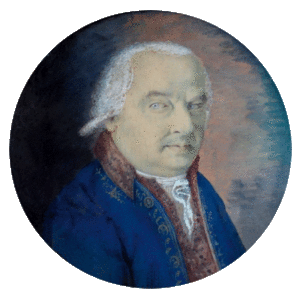José Clavijo y Fajardo facts for kids
José Clavijo y Fajardo was an important Spanish journalist. He was born on March 19, 1726, in a town called Teguise on the island of Lanzarote. He passed away on November 3, 1806.
The Life of José Clavijo y Fajardo
José Clavijo y Fajardo was born on the island of Lanzarote, which is part of the Canary Islands of Spain. Later, he moved to Madrid, the capital city.
In Madrid, he became the editor of a newspaper called El Pensador. An editor is someone who decides what goes into a newspaper or magazine. He used his newspaper to speak out against certain types of religious plays called autos sacramentales. Because of his efforts, these plays were stopped in 1765.
In 1770, José Clavijo y Fajardo became the director of the royal theatres. This meant he was in charge of the king's theaters. However, he soon left this job to become the editor of another important newspaper, the Mercurio Histórico y Político de Madrid.
When he died in 1806, he was working as a secretary for the Cabinet of Natural History. This was a place where important natural objects and scientific discoveries were kept and studied.
José Clavijo's Impact as a Journalist
José Clavijo y Fajardo was a brave and determined journalist. He was very good at expressing his opinions strongly. His work helped to end a special kind of Spanish play called autos sacramentales.
His life also inspired a famous play. He had a connection with one of the sisters of a French writer named Pierre Beaumarchais. This connection became the idea for a play called Clavigo, written by the famous German writer Johann Wolfgang von Goethe. This play was one of Goethe's first published works.
See also
 In Spanish: José Clavijo y Fajardo para niños
In Spanish: José Clavijo y Fajardo para niños
 | Georgia Louise Harris Brown |
 | Julian Abele |
 | Norma Merrick Sklarek |
 | William Sidney Pittman |


